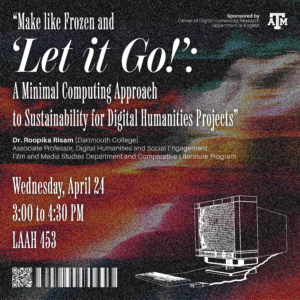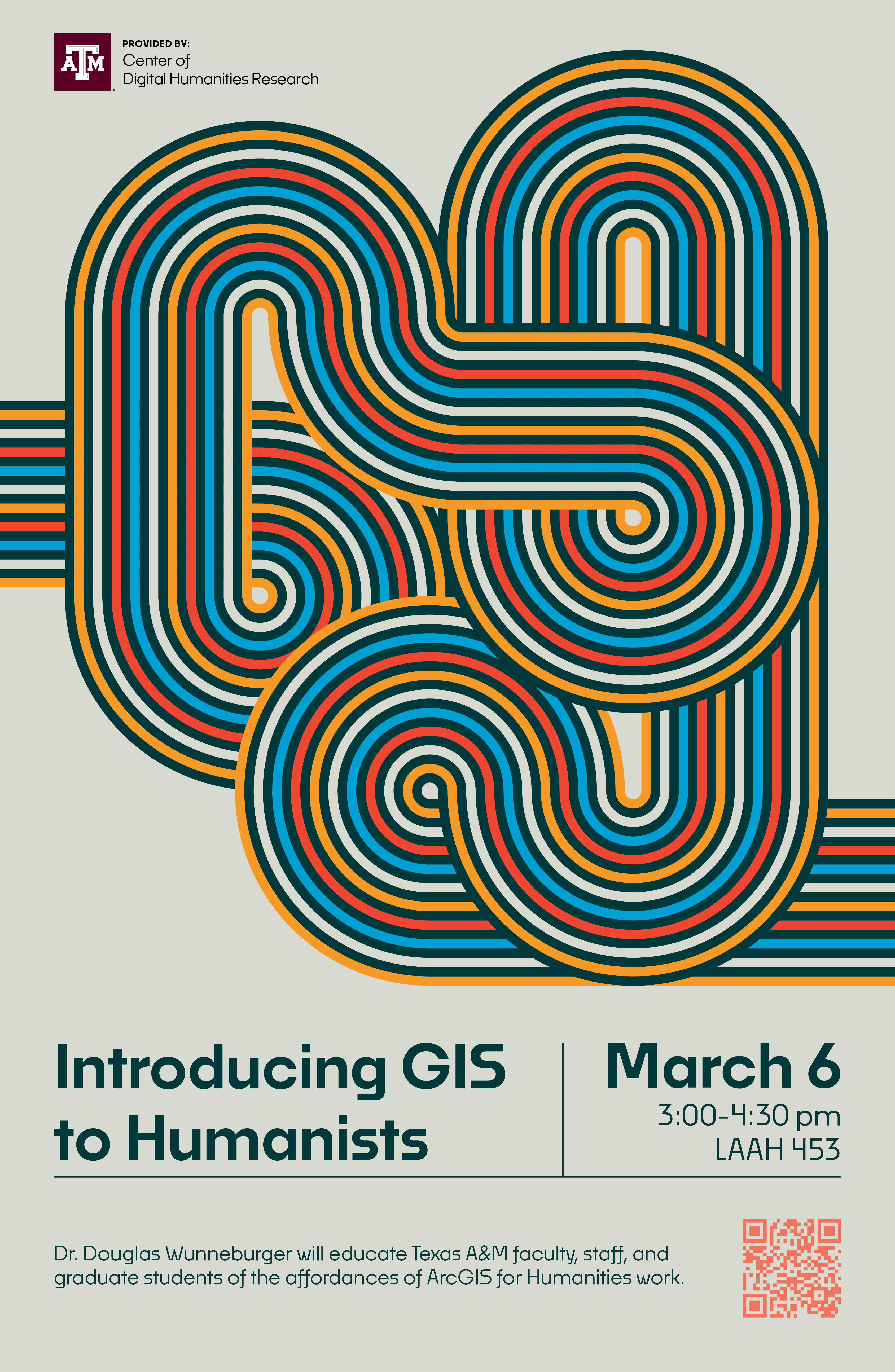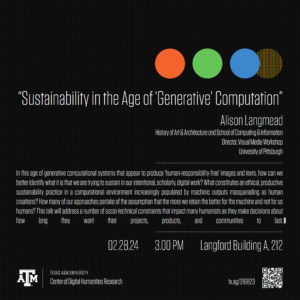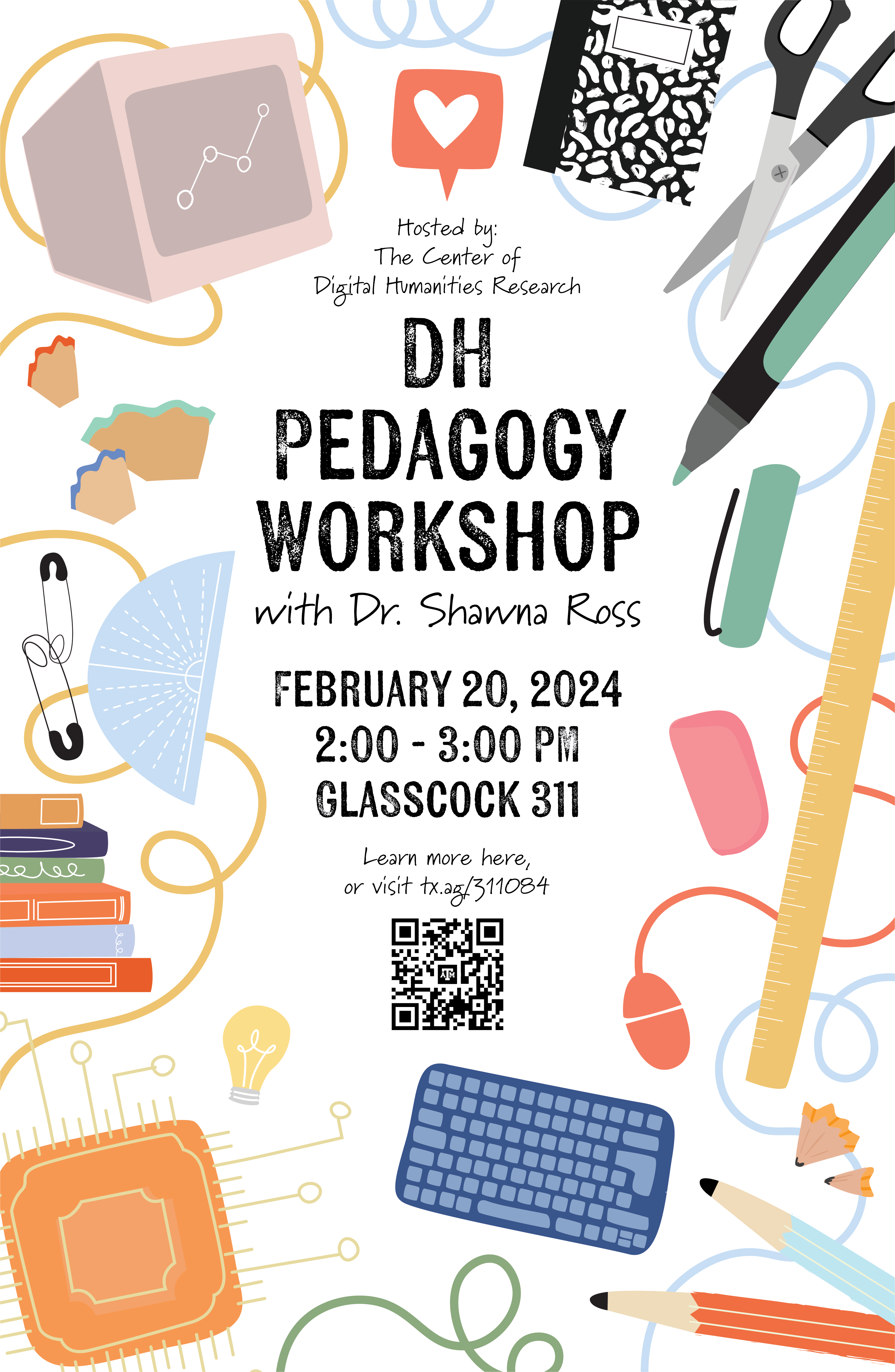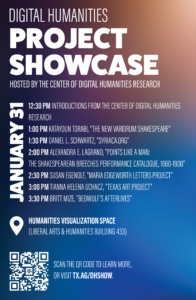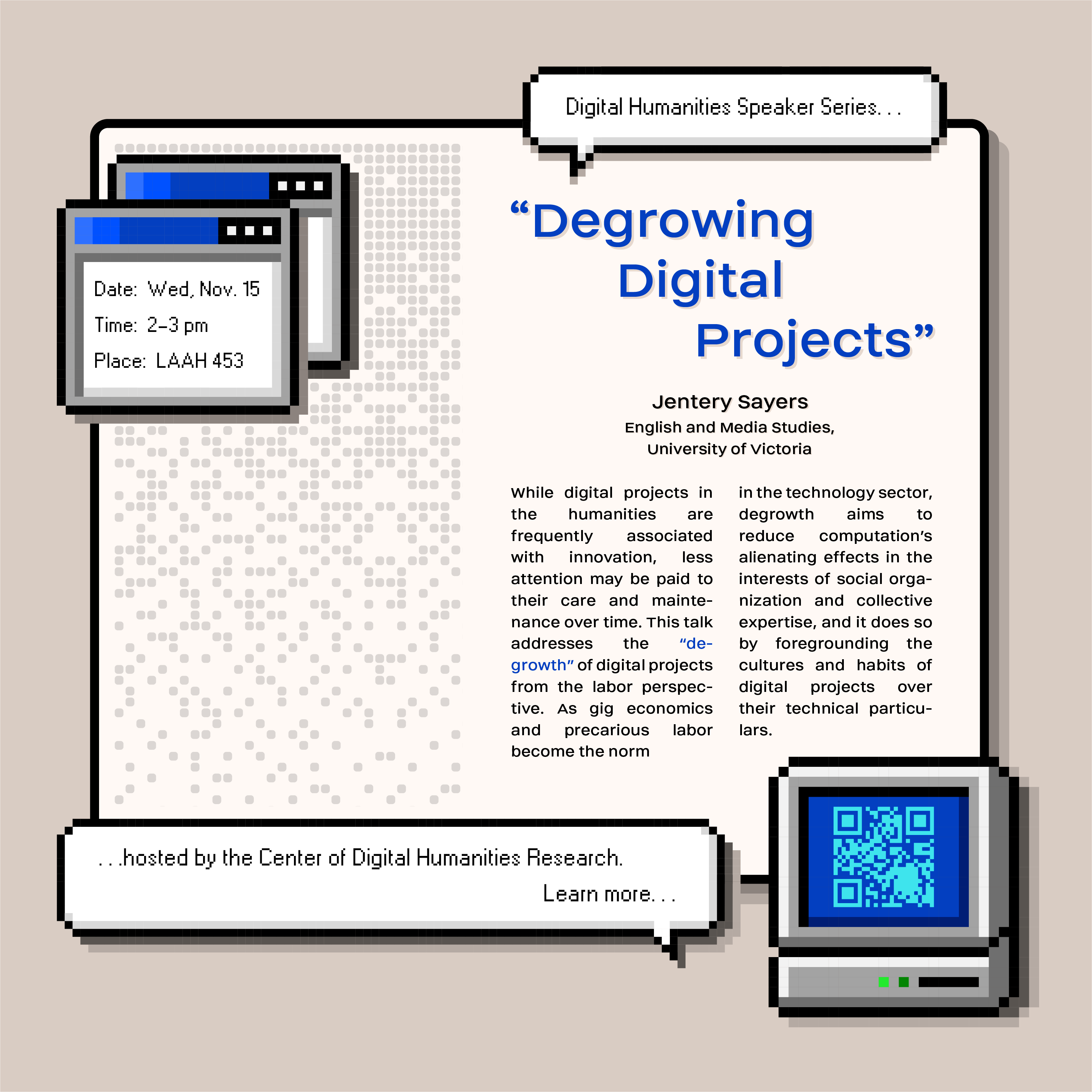Lectures, Workshops, and Presentations
Upcoming events can also be viewed on our Event Calendar.
Upcoming Events
![]()
CoDHR Office Hours
CoDHR Office Hours are for Texas A&M faculty, staff, and students who have questions about CoDHR's resources and/or are in need of technical assistance on their digital projects.
Office hours are held in-person, every Tuesday from 3-5 PM in the CoDHR Lounge, LAAH 448. Walk-ins are welcome, but we recommend booking an appointment with Bryan Tarpley if you require in-depth technical assistance.
Past Events
|
(April 29, 2024) Folio Futures: Editing Early Modern Plays for Tomorrow’s Audiences
The symposium will bring together scholars from around the world to assess the history of and future possibilities for editing Shakespeare and his contemporaries. Scholars of Shakespeare’s works, digital humanists, and NVS editors will discuss the challenges and opportunities of editing in the twenty-first century for new global audiences who read, perform, and teach in a variety of media. The symposium will feature keynote speakers Kristen Abbott Bennett (Associate Professor at Framingham State University) and Eric Rasmussen (Regents Teaching Professor and Foundation Professor of English at the University of Nevada), as well as round-table discussants. This symposium is free and open to the public thanks to the generous support of our sponsors:
|
|
|
| (April 24, 2024) "Make Like Frozen and 'Let It Go!': A Minimal Computing Approach to Sustainability for Digital Humanities Projects", Dr. Roopika Risam |
|
|
| (April 16, 2024) Digital Humanities Working Group
The group will discuss two works from Dr. Roopika Risam ahead of her lecture and campus visit on April 24-25, 2024. The group is encouraged to read the Introduction to The Digital Black Atlantic and "Chapter 1: The Stakes of Postcolonial Digital Humanities" from New Digital Worlds: Postcolonial Digital Humanities in Theory, Praxis and Pedagogy. |
|
|
| (March 6, 2024) “Introducing GIS to Humanists” Workshop with Dr. Douglas Wunneburger
|
|
|
| (February 28, 2024) “Sustainability in the Age of ‘Generative’ Computation”, Dr. Alison Langmead
Presentation slides can be viewed here. In this age of generative computational systems that appear to produce ‘human-responsibility-free’ images and texts, how can we better identify what it is that we are trying to sustain in our intentional, scholarly, digital work? What constitutes an ethical, productive sustainability practice in a computational environment increasingly populated by machinic outputs masquerading as human creations? How many of our approaches partake of the assumption that the more we retain the better for the machine and not for us humans? This talk will address a number of socio-technical constraints that impact many humanists as they make decisions about how long they want their projects, products, and communities to last. |
|
|
| (February 20, 2024) “DH Pedagogy Workshop” with Dr. Shawna Ross
|
|
|
| (February 14, 2024) Digital Humanities Working Group
The group will discuss various works from Dr. Alison Langmead in preparation for her visit to Texas A&M on February 28-29, 2024. |
|
|
| (January 31, 2024) DH Project Showcase
- Katayoun Torabi, “The New Variorum Shakespeare” |
(November 15, 2023) "Degrowing Digital Projects", Dr. Jentery Sayers
Presentation slides can be viewed here.
While digital projects in the humanities are frequently associated with innovation, less attention may be paid to their care and maintenance over time. This talk draws from recent research in activity theory and minimal computing as well as allied fields, such as game studies, to address the “degrowth” of digital projects from the labor perspective.
Degrowth aims to reduce computation’s alienating effects in the interests of social organization and collective expertise, and it does so by foregrounding the cultures and habits of digital projects over their technical particulars. These issues matter for the livelihood of practitioners as gig economics and precarious labor become the norm in the technology sector.
(November 15, 2023) "Coffee & Chat with Dr. Jentery Sayers"
A casual meeting with guest lecturer Dr. Jentery Sayers, University of Victoria. Members of the Digital Humanities Working Group as well as interested faculty, staff, and students are welcome to attend.
(November 1, 2023) “Pursuing and Presenting DH in the Academy” Workshop with Dr. Amy Earhart
Join us to learn from Dr. Amy Earhart how to present Digital Humanities work from graduate school to your future career, including how to discuss your work with your dissertation committee, colleagues, and more.
(October 27, 2023) Digital Humanities Working Group
This general meeting will be a discussion, led by Dr. Katayoun Torabi, on Johanna Drucker's "Digital Humanities Overview" from The Digital Humanities Coursebook (2021).
(September 11, 2023) Digital Humanities Working Group
We are excited to announce the first meeting of the new Digital Humanities (DH) Working Group, co-convened by Dr. Maura Ives and Alexandra LaGrand! This new initiative will foster a welcoming community for collaboration and provide a forum for the presentation and discussion of research in the field of Digital Humanities. Faculty, staff, and students of all experience and interest levels are welcome to attend.

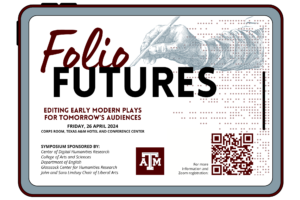 In celebration of Texas A&M University’s designation as the host institution for the
In celebration of Texas A&M University’s designation as the host institution for the 